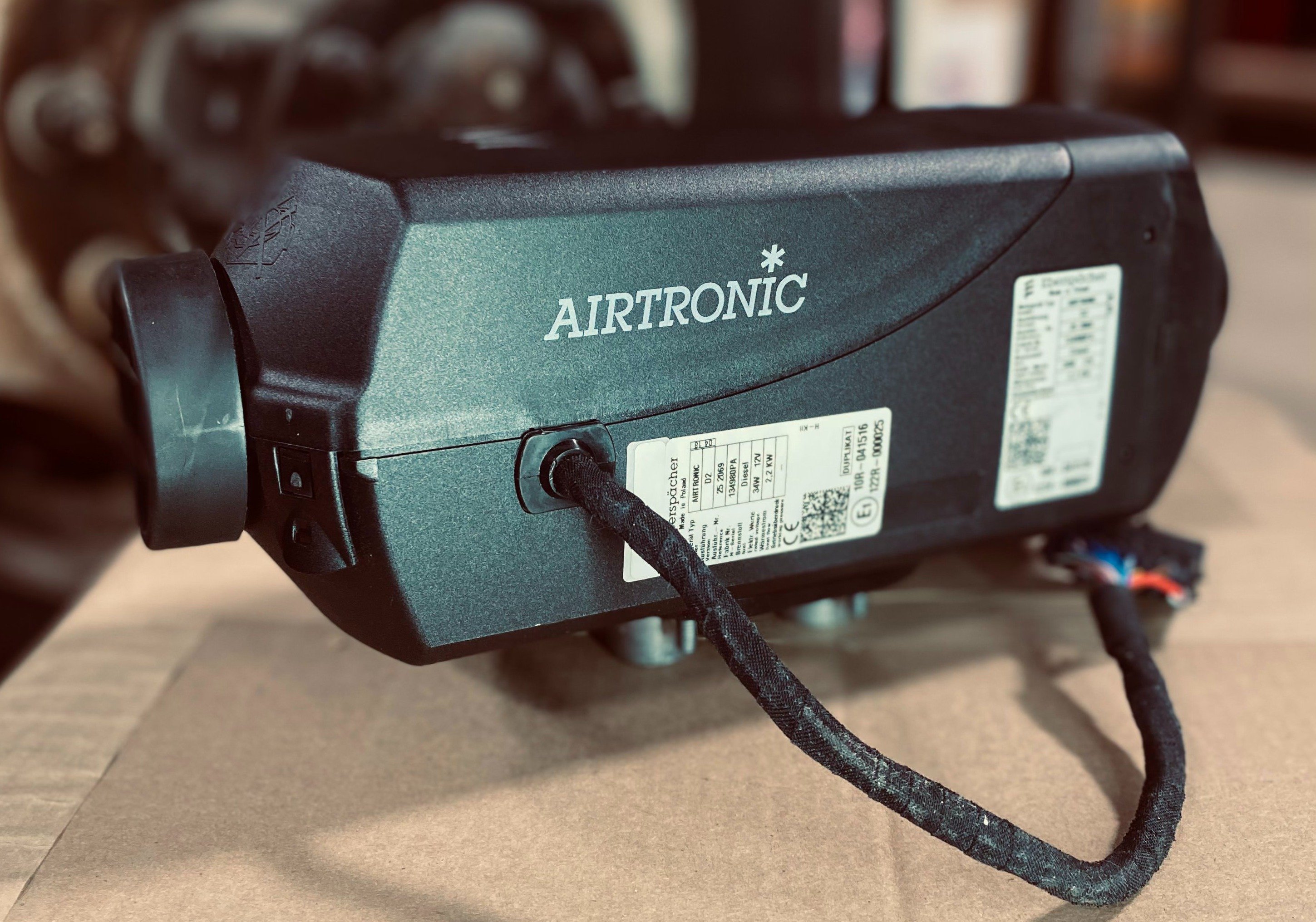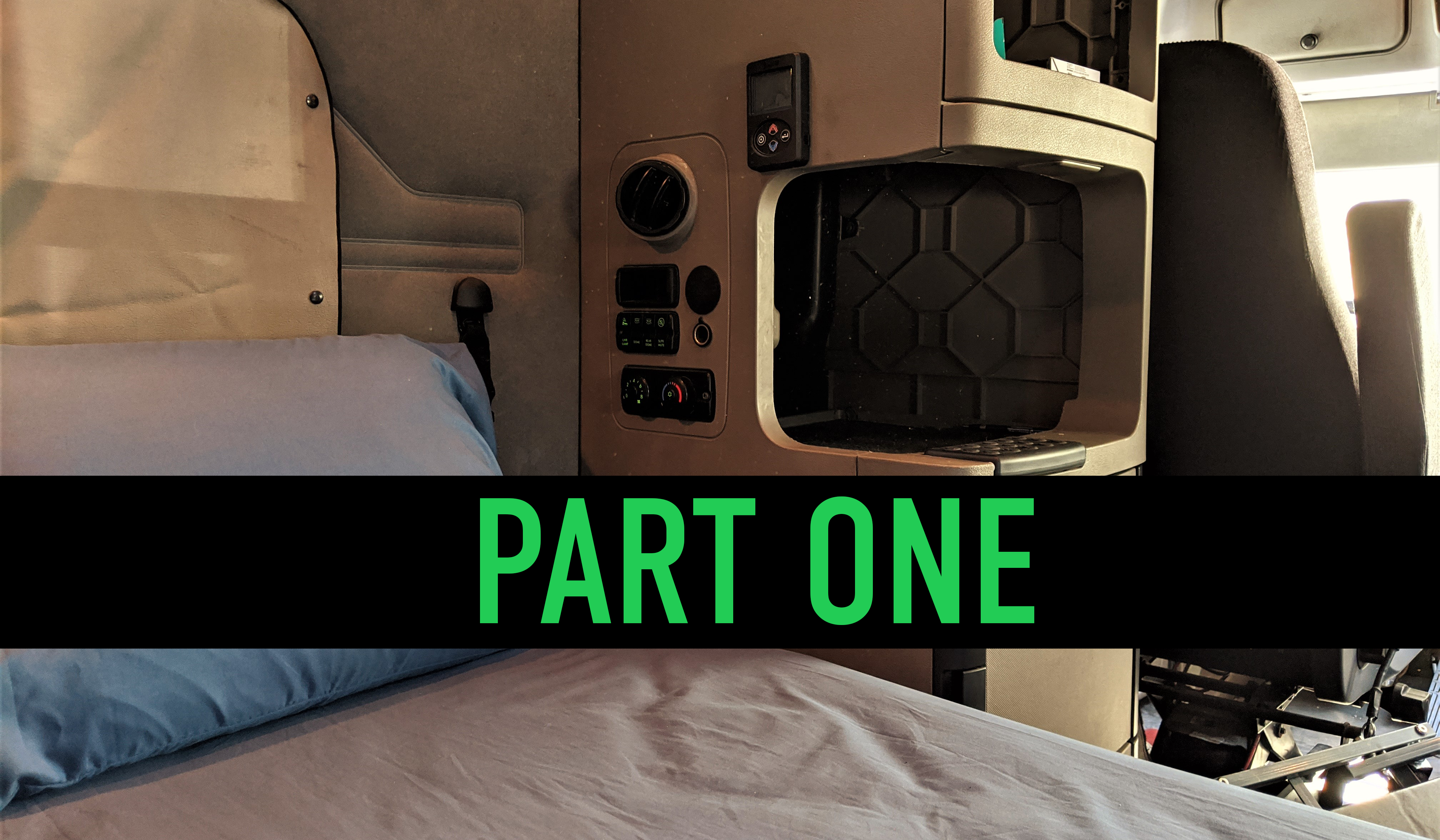Protecting Fleets from Nuclear Verdicts: A Conversation with Josh Kelly, Founder of Fleet Wide Consulting
by Elayne Cronin, Ph.D. | Oct 26, 2021 | Preventative Maintenance, Consulting, DOT compliance | 0 Comments
Josh Kelly is the founder and owner of the South Boston based Fleet Wide Consulting, a firm dedicated to servicing smaller fleets and helping them with fleet safety, DOT compliance, truck leasing negotiations among many other things small fleets need to be successful today. Josh entered the industry shortly after graduating college and gained a passion for working with people involved in all aspects of the industry. He identified some gaps for smaller fleets and decided to start his own business to help smaller sized fleets! I sat down with him to learn about his consulting business and some of the interesting and surprising things he's learned along the way.
Elayne: How and why did you found Fleet Wide Consulting?
About 15 years ago, I entered the corporate world. I spent 10 years at one of the nation's largest truck leasing companies. That’s where I got my foundation in this industry. I dealt with a lot of small businesses. For the most part, the average fleet size of a company that leases trucks is around three to five trucks. With small businesses, you're dealing with owners, truck drivers, mechanics. You're learning it from the ground up. And I had a lot of success and I enjoyed every aspect of transportation. So I knew that was where my passion was. And soon after that, after 10 years or so in that world, I pivoted very nicely into technology: vehicle specs, financing of assets, fleet maintenance, operational support, resale strategies.
What I learned is that the market is driven to [target] companies that have hundreds or thousands of trucks. For the most part, the small businesses out there are missing out on expertise or consulting support. In my time in that sector, I learned a lot more about fleet safety and DOT compliance. So as I was starting to put all this knowledge together, I knew I could bring value to small businesses who are looking for expertise in a variety of aspects of fleet management. I knew I could do it and build real long-term relationships with my clients. So that was why I founded it.
What has been surprising to you while consulting these smaller fleets?
Fleet technology companies are looking to integrate and build an ecosystem that all talk to each other, but at the same time, there's five or six operational or managerial people in the room maing decisions. Everyone has a different objective to get their job done. So it's very tough to map out technology investments. I knew I had that knowledge in y tool belt, but I also didn't know it was going to be such a big conversation piece. I would say DOT compliance turned out to be one of my bigger service offerings. I thought that was going to be something that I could round out my service offerings with, but turns out DOT compliance and safety has been a huge gap in the industry. There's been a lot of need for that type of expertise.
Why is DOT compliance such a big deal for smaller fleets?
Insurance is driving the industry right now. And insurance is predicated on safety scores, which are driven by what's going on on the road every day. Are there crashes? What are the trends that they're seeing? Are there high frequency of crashes or roadside violations? Or {what is] the severity of them, if they're major crashes and there's a trend of highly severe ones. So what we try to do is with DOT compliance is almost just the minimum standard of where companies should be at for operational guidance, but go a step above. {Fleets} are trying to prevent crashes from happening altogether. The biggest worry out there I'm noticing is nuclear verdicts, which is a new trend in the industry.
There’s a few definitions of nuclear verdicts. But one of them is anything over $10 million dollars awarded to the plaintiff after an accident. The number of these cases that have resulted in $10 million or more fines have gone up at least six times in the last 10 years. The plaintiff’s lawyers are not really looking at the facts of the crash. What they're looking at is: What is the fleet’s safety management protocols? And is the fleet following them to the best of its ability and trying to prevent that crash from happening altogether? The lawyers often do not pay attention to who is at fault or the facts of the crash. It's more: Was your driver doing the right thing at the right time, based on your safety management protocols? So, that's the biggest thing, the companies are trying to get ahead of that. And then it ties right into insurance because eventually insurance companies just price themselves to where a company can't get insured anymore. They just can't afford it. So that's why it's so important. Sustain a business, sustainability is the short answer.
When a client hires you, can you describe a little bit what your process is like and what you do for them?
I offer a wide range of services, but let's just talk about DOT compliance. I do an opening meeting with everyone that's involved in the fleet operation. I usually do a day and a half or two days of onsite. I'll do a mock audit. I'll pretend to be a DOT officer and I drill into any gaps that they have in compliance. So any non-compliance issues I identify, I put it into a report. I give them suggested corrective actions to take, to eliminate those non-compliance issues. And then we have a closing meeting with everyone in the room again. We fully go over everything, make sure everyone understands what we talked about and the corrective action going forward. Many times I'm kept on to drive the process, make sure everything's being followed up with appropriately. I put the game plan together or wrap up the project with where we were to where we are today and continuous improvement strategies going forward.
Another example [of my services] include truck lease negotiating. For example, the company has X amount of trucks. They lease them all or a portion of their fleet and they want someone to come in and look at their truck lease contracts and negotiate their leasing agreements. That's important because it's often a five to seven year contract. Those are very long business contracts and it's really important to negotiate everything possible into the deal because today, everyone can agree on something, but if it's not in writing, 3, 5, 7 years down the road it can cause issues.
My goal is to eliminate those gotcha moments and to enhance the business relationship between the client and the vendor. Everyone's happy for the next five to seven years. It's a fair deal. So that's another aspect of what I do and it's enjoyable because again, I'm building a long-term relationship with my clients.
Do you want to just briefly describe some of the other services that you do?
Fleet technology is really new to the small business industry and transportation. So that includes tech like electronic logging devices. Many companies invested in electronic logging devices because they were mandated to do that. And when they did it, there just wasn't enough manpower in the whole industry to properly implement, train drivers and back-office employees. And that turns out to be another huge need in the industry. There needs to be someone onsite training people, how to properly use it and really to dig into the capabilities of the tech investments they've already made. Many times companies have the 'set it and forget it' mentality. They think it's, we're good to go, when in reality there's turnover internally. So new people come in and aren't familiar with software, aren't familiar with capabilities.
Fleet cameras are a huge industry norm now. If you don't have cameras in your trucks, you're doing yourself a disservice and you're opening up yourself to litigation possibilities. Now, if you have a camera there and you see what happens, you have it documented. You can make a decision to fight the claim or to pay out the claim. But many times companies don't properly train their drivers. No one understands how to use it or what it does or what the technology does. I do pre-employment screening for their drivers, record keeping, file management, making sure that everything's up to date. I named my company Fleet Wide Consulting for that reason, it's fleet wide. It touches upon every aspect of fleet management. So another side of things is safety management, driver training, in person driver training, really hammering home the idea of eliminating distracted driving.
How can a fleet reach you?
My company website is fleetwideconsulting.com. I am based in Boston. I support companies in New England and my cell phone is (781) 424- 2076. I tell all my clients, they can reach me there anytime they need me. My email is joshua@fleetwideconsulting.com. Those are the best places to reach me. You can find us on social media as well. That's all linked on my website: fleetwideconsulting.com.
Is there anything else you'd like to add that I didn't ask you?
Just that I think transportation is so important in our day to day lives. I think no one realizes how critical trucks are in our, the world we live in. I tell everyone, everything touches a truck at some point, if not multiple times. So that includes your furniture delivery that gets delivered to your house. That includes food that gets delivered to the supermarkets. That's the fuel that gets delivered to the gas stations. The list goes on and on. Everything touches a truck. And I think it sometimes gets over overlooked a lot. . I think that the industry is the backbone of our country. I’ll leave it at that.
Most Popular
Categories
- RelGen (18)
- Anti-Idle (14)
- Charging Solutions (13)
- Battery Recharge (11)
- Electric APU (10)
- Liftgates (10)
- Preventative Maintenance (7)
- Voltage Loss (6)
- DC/DC converters (4)
- Driver Retention (4)
- Uptime (4)
- fuel savings (3)
- 48V (2)
- Blackburn Team (2)
- Solar Panels (2)
- Consulting (1)
- DOT compliance (1)
- Espar Airtronic D2 Diesel Fired Air Heater (1)
- Financing (1)
- Hardware as a Service (1)
- Power Wall (1)
- alternators (1)
- data (1)
Archives
- October 2020 (4)
- November 2020 (4)
- May 2020 (3)
- September 2020 (3)
- March 2021 (3)
- April 2021 (3)
- July 2020 (2)
- August 2020 (2)
- January 2021 (2)
- June 2020 (1)
- July 2021 (1)
- August 2021 (1)
- October 2021 (1)
- January 2022 (1)
- February 2022 (1)
- March 2022 (1)
- June 2022 (1)
- October 2022 (1)
- January 2024 (1)
- March 2024 (1)
- May 2024 (1)
- September 2024 (1)











